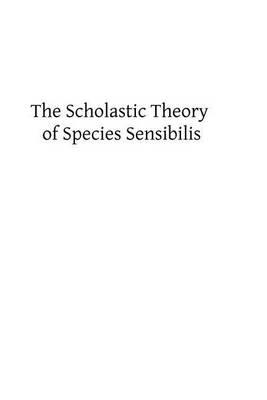Overview
This work begins: Contemporary philosophy is interested in the theory of knowledge more than in any other branch of speculative thought. Before we philosophize we are asked to demonstrate the possibility of knowledge, and in order to do this, we must determine the nature of knowledge. But to define knowledge apart from the process by which it is acquired, is impossible. Hence we must go back one more step and investigate the origin of knowledge. Later on we read: Scholasticism is sometimes pictured as a closed, static system of thought, based in a large measure on authority, human and divine, with no development or evolution. There may be some ground for this accusation in the decadent Scholasticism of the fourteenth and fifteenth centuries. But herein Scholasticism is no exception. History attests the sad fact that all great intellectual geniuses have been unfortunate in so far that their ideas were not developed, sometimes not even fully understood, by their immediate successors; the pupil contented himself with restating the words of the master instead of extending their application. Scholasticism in the period of its development before St. Thomas, presents another picture. The theory of the species sensibilis, for instance, in the eleventh century is so different from this same theory in the thirteenth century, that we should hesitate to apply to the former the name of species-theory, were it not suggested by the natural historical development. In fact, as we find three general views regarding sensation itself, the psychical, the materialistic, and the psycho-physical view; so, too, we find in the history of Scholasticism three aspects of the species sensibilis, the psychical, the materialistic, and the psycho-physical. In discussing the relation of scholasticism to Saint Augustine we read: St. Augustine is usually classed with the patristic philosophers. But the early Scholastics are so generally dependent upon him as their guide and their authority, that, in order to understand any Scholastic doctrine in its earliest phase, it is helpful, if not indeed necessary, to examine first St. Augustine's view of this doctrine. And we can summarize: The history of the theory of the species sensibilis from St. Augustine to St. Thomas is indicative of the development of Scholasticism during its formative period. Based on the idealism and subjectivism of St. Augustine, the Scholastics before the twelfth centuri developed dialectics and pure metaphysics. Thereupon, realizing the fruitlessness of their speculations, they welcomed the new learning of the Arabians, which was based on observation rather than on speculation, and which, consequently, favored materialism rather than idealism. But as in the history of all human thought extremes beget their opposites, so in this case. In the twelfth century the natural sciences and the human art were fostered to the neglect of what is today called philosophy. In consequence thereof, scientific knowledge outdistanced metaphysics; facts and phenomena of nature were observed, but metaphysics could not explain them. Thus the stage was set for the entrance of a philosophy which would account for the ultimate causes of things of sense. At this psychological moment the works of Aristotle were introduced into the Western world. Thenceforward the development of Scholasticism consisted in the more and more perfect adjustment of all knowledge according to Aristotelian principles. This, of course, provoked the opposition of conservative minds, but the struggle resulted, as snch a struggle could only result, in the final acceptance of Aristotle, modified in part by the traditional philosophy of Plato to and by the individual thought of the great Scholastics of the thirteenth century.
Full Product Details
Author: Brother Hermenegild Tosf ,
Othar F Knapke
Publisher: Createspace Independent Publishing Platform
Imprint: Createspace Independent Publishing Platform
Dimensions:
Width: 15.20cm
, Height: 0.60cm
, Length: 22.90cm
Weight: 0.163kg
ISBN: 9781484924914
ISBN 10: 1484924916
Pages: 114
Publication Date: 09 May 2013
Audience:
General/trade
,
General
Format: Paperback
Publisher's Status: Active
Availability: Available To Order

We have confirmation that this item is in stock with the supplier. It will be ordered in for you and dispatched immediately.



